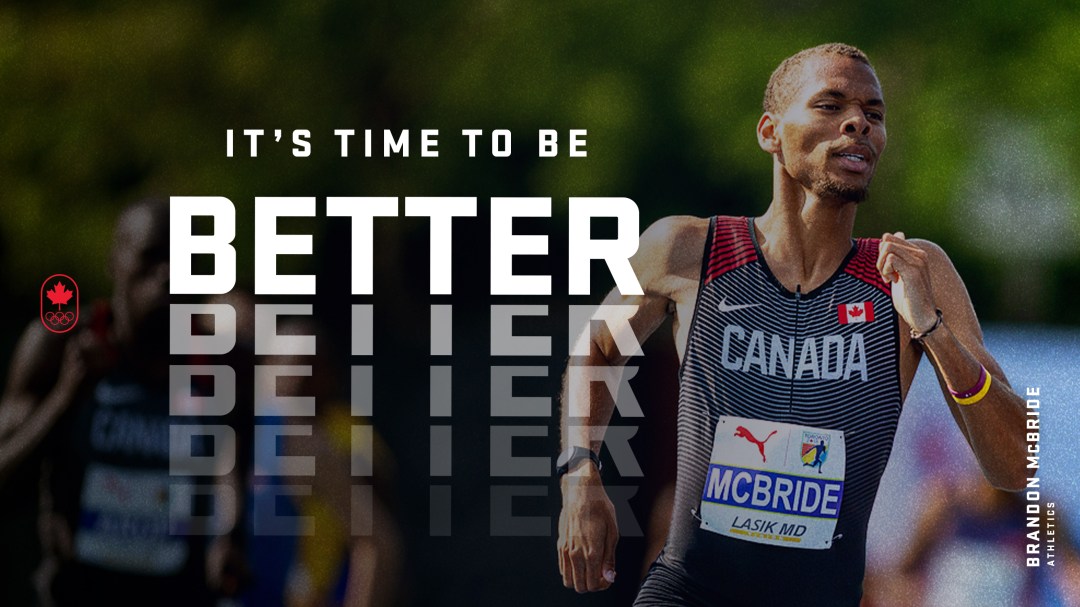Brandon McBride: Keeping His Head on a Swivel
Athletes are admired for their seemingly superhuman abilities – but what fans don’t see from behind their screens or sitting on bleacher seats is the racism and discrimination many Black, Indigenous, and People of Colour (BIPOC) athletes face.
An Olympian and 800m national record holder, Brandon McBride is one of the best in his sport. But his accolades haven’t rendered him immune to racism and discrimination. It was in 2012, just two months into his freshman year at Mississippi State University, when he realized that racism and discrimination are still prevalent.
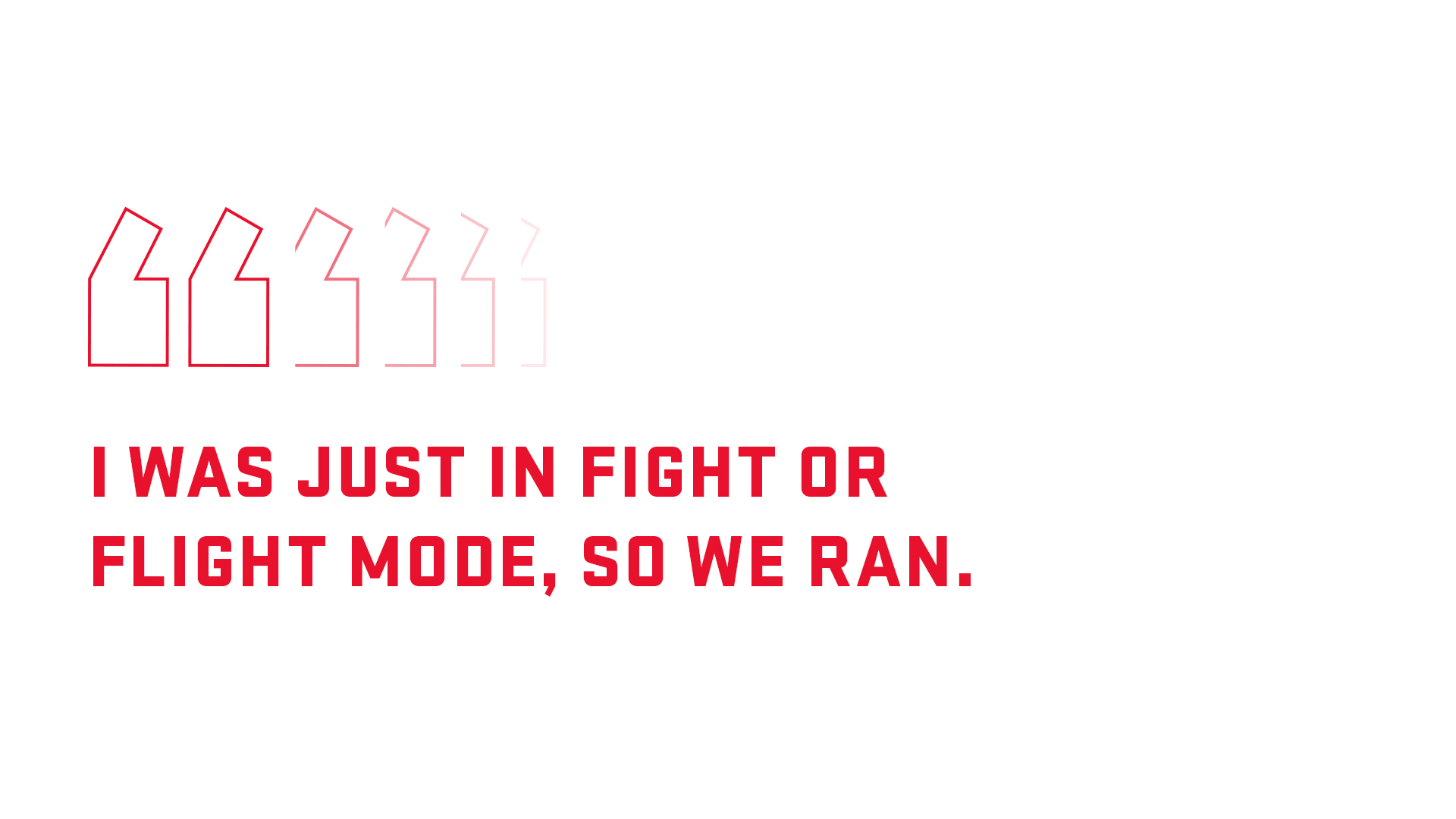
“It was a Caucasian neighbourhood and I just remember seeing these children and they looked at us like we were aliens, like they had never seen us, or African-Americans or anyone of darker complexion,” McBride told Olympic.ca recently. “There was a little boy and a little girl. And the little girl was yelling at the other child saying, ‘Don’t go get Dad. Dad is going to freak out. Don’t do it, don’t do it!’.”
McBride, with his teammate and friend, Steve Shoto, were out for a 16-kilometre run in Jackson, Mississippi. Shoto had warned McBride that it wasn’t safe for two Black men to be running in a predominately white neighbourhood and that running along the highway would be safer for them. Not long after his friend’s warning, McBride quickly realized they were in a life-threatening situation.
“All of a sudden, this grown man comes out [of a house] with a shotgun in his hand,” said McBride. “I just remember Shoto yelling, ‘He has a shotgun in his hand, we gotta go, we gotta go!’ And all of a sudden I look back and just see this grown man sprinting after us. I was just in fight or flight mode, so we ran.”
McBride credits that day as a pivotal moment when he became more sensitive and aware of racism.
“I actually wouldn’t change much [about his experience in Mississippi] because my teammates, my close friends, were very patient with me and taught me so much and guided me through this.”
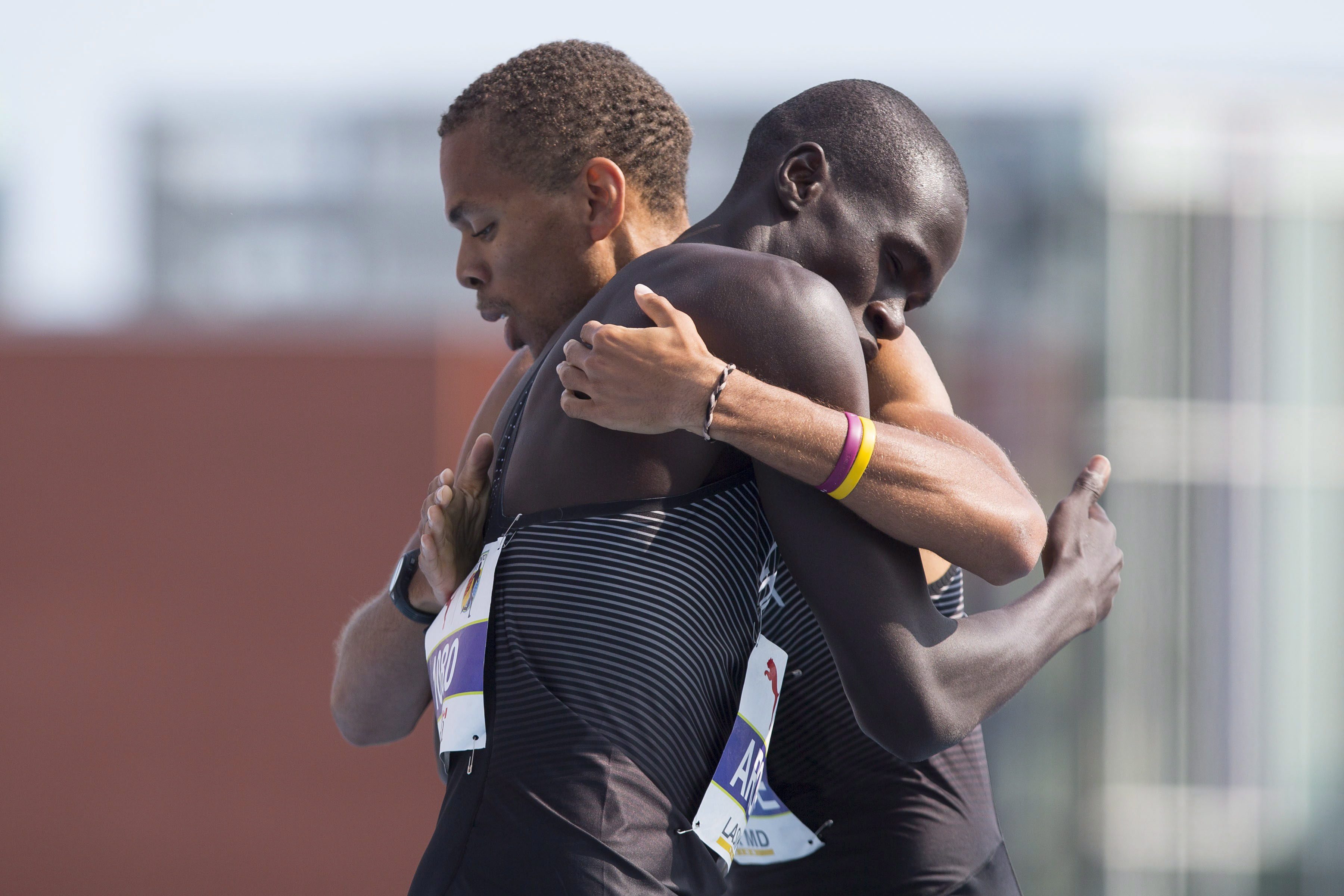
Brandon McBride, facing left, with Marco Arop after winning the men’s 800m final at the 2018 NACAC Championships in Toronto. THE CANADIAN PRESS/Chris Young
BIPOC athletes live in two worlds: one where fans respect and appreciate them, and another where they are discriminated against because of their skin colour.
“I could see how if you ignore the early signs, you can quickly get yourself in a situation where it could be life threatening,” McBride said.
He now constantly keeps his head on a swivel, because his experiences with racist and discriminatory behaviour didn’t end with that day in Jackson. And, they haven’t been confined to a single situation, one city, one state, or even one country.
“People say, ‘Well, that doesn’t happen here [in Canada]’. Well you don’t think it doesn’t happen here, but I was in Ottawa and I went to an Italian restaurant and the server didn’t acknowledge me,” McBride shared. “The server actually left and told another server to come serve me because clearly he was uncomfortable […] I spoke to him and he looked at me and then turned his head and refused to speak to me but spoke to the person I was with and that person just so happened to be Caucasian.”
From being refused service in places such as Ottawa and Switzerland, to being threatened by police in locales including Australia and Miami. It’s the reality he lives with daily, a problem that’s follows him everywhere – including the place he calls home.
“The toughest part of the type of racism we experience here in Canada is that it’s the type of racism that’s covert,” McBride explained. “It’s a smile on your face, but I’m calling you a racial slur behind your back; I’m saying that I’m joking to you, to your face and smiling, but I’m making backhanded compliments.”
In all its forms, racism has taken its toll on McBride’s mental health.
“Imagine having to go through that every single day,” he related. “The first couple of times, yes, you can walk away, yes, you’re not going to be angry. But compounded over 25, 26 years dealing with that every day, you might be different. You might be a little more angry than you are right now.”
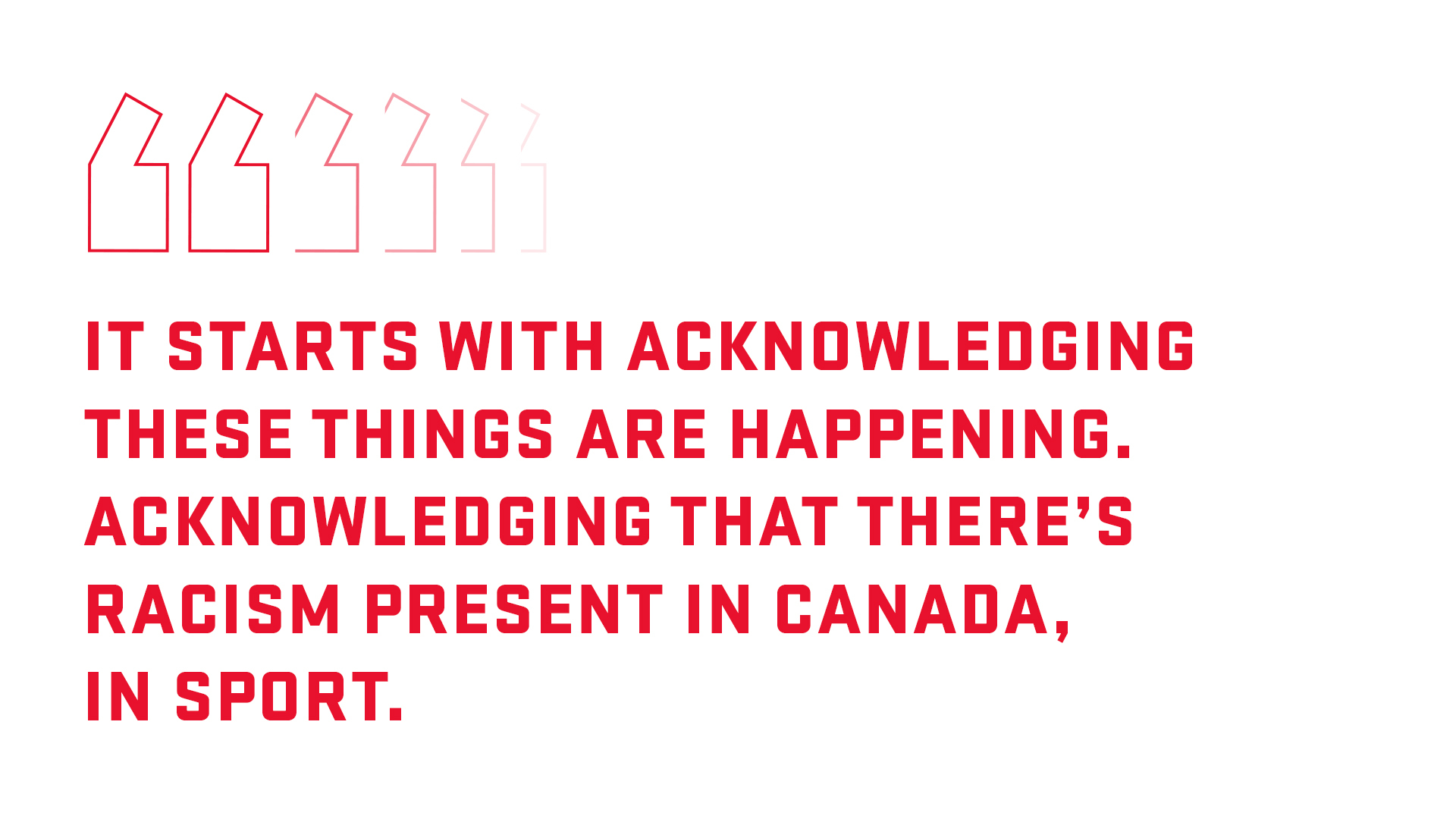
In the wake of George Floyd’s death, the subsequent Black Lives Matter protests, recent BIPOC public education efforts, and new calls for government action regarding use of police force, McBride is thankful for the experiences he’s had when it comes to racism. He says he uses them to empathize with others experiencing racism and discrimination.
It was his run through that Mississippi neighbourhood all those years ago that shaped him into the person he is today.
“With everything I experienced in Mississippi, I wouldn’t change it because I like the person that I am. I like the things I’ve been able to give others because of my experiences and how patient and understanding I’m able to be with others and with a lot of my younger siblings and a lot of my little cousins. I’m proud of that.”
McBride wants people to remember that the Black Lives Matter protests are for justice and equality.
“What they’re saying is that they want their lives to matter just as much as white lives, or the majority,” said McBride. “They want to be treated with equality. They’re sick of being gunned down, treated unfairly. They’re sick of systemic racism, oppression, these things run very deep […] Unfortunately, this is our reality. This is the reality of minorities.”
And in McBride’s experience, it is a reality in every facet of society, including Canadian sport. He says change begins with an important first step.
“It starts with acknowledging these things are happening. Acknowledging that there’s racism present in Canada, in sport.”
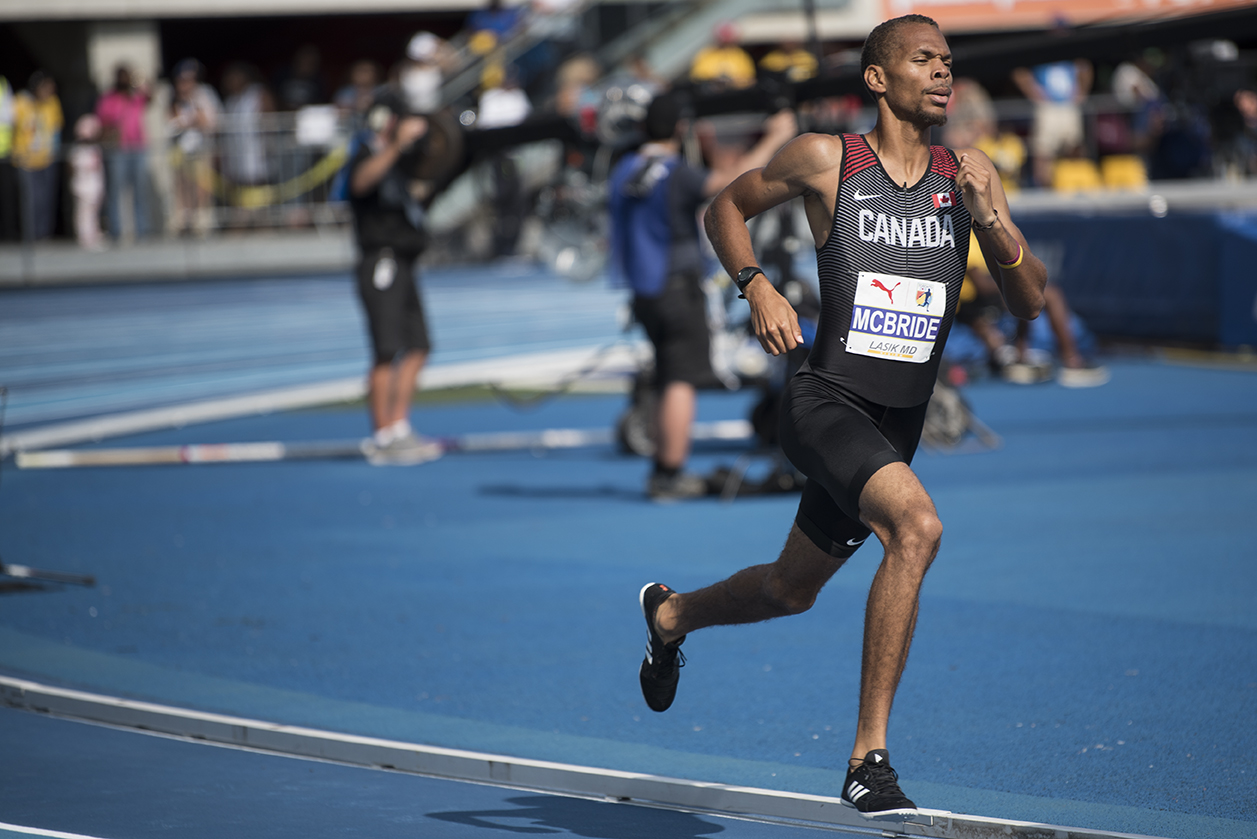
Brandon McBride racing in the 800m at the 2018 NACAC Championships in Toronto. (Credit: @TeamCanada/Thomas Skrlj)
McBride says the biggest problem with combatting racism in sport is athletes are scared to speak out and report it. The fear of being treated worse or having their claims not taken seriously puts the athlete in an uncomfortable situation, leaving them feeling scared and alone.
“When athletes do actually speak up on the matter, they have to go through this three or four-year long process where people are doubting them,” said McBride. “I honestly believe that every coach needs to go through racial sensitivity training to help them be able to be more sensitive and aware of these racial tendencies.”
He also says coaches, managers, and professionals need to provide athletes with more support when they encounter racist or discriminatory behaviour. He hopes to see an athlete hotline in the future, where they can get support to help them navigate racist situations, and to see the sport community take action against discrimination.
With the calls on organizations to do more for BIPOC, the Athletics Canada Athlete Council has pledged to be allies with their members; to listen, learn, and ensure opportunities and resources for BIPOC athletes. They have said they want to do more to engage in a meaningful way with and help the BIPOC community while amplifying athlete voices.
There’s a lot of work that still needs to be done for equality, but McBride says he is hopeful that change will come.
“Don’t get me wrong, things are still ugly, but people are now more aware of what’s going on,” he said. “With a lot of the things that have occurred there’s no denying it, there’s no saying that ‘this person is lying’ or ‘that person is lying’ because it’s on video. A lot of these people are being caught on video. Whereas maybe back five or 10 years ago, there wouldn’t be someone recording, or someone wouldn’t think to record this.”
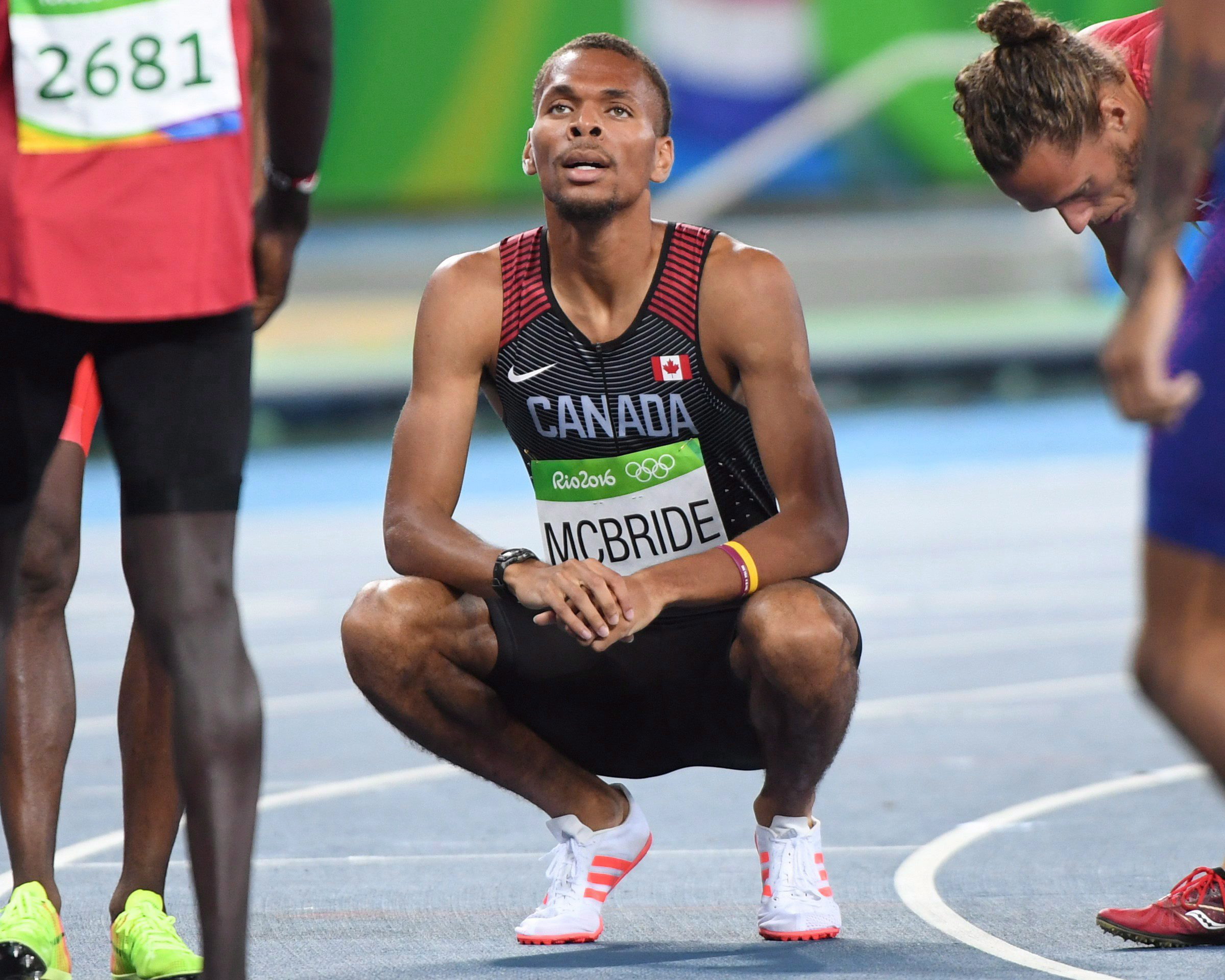
Brandon McBride after the men’s 800m semifinal at the 2016 Olympic Games in Rio. THE CANADIAN PRESS/Ryan Remiorz
Reflecting on his experiences, McBride would give this advice to his younger self:
“It’s okay to talk about it. It’s okay to be hurt, it’s okay to cry […] The things you’ve experienced would drive the average person insane. It’s perfectly okay to talk about these things and it’s perfectly okay to seek help in understanding these things. Definitely invest in your mental welfare.”
As McBride continues to train and prepare for Tokyo 2020, it’s not lost on him that there needs to be support for younger athletes going through situations similar to his own.
He hopes to start a not-for-profit with his girlfriend that benefits Black and minority youth.
“I remember when I was younger, I didn’t really have that person outside of my parents that could help me understand what’s going on. But maybe if we had that person outside of our family, that was able to speak on what is important in life, and the way to navigate through all of this, that would’ve helped a lot. So, we want to start something that would provide that to a lot of the young minority youth.”

